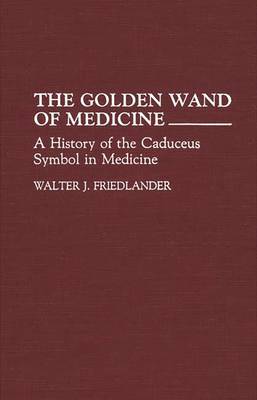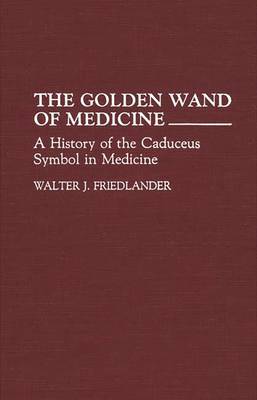
- Afhalen na 1 uur in een winkel met voorraad
- Gratis thuislevering in België vanaf € 30
- Ruim aanbod met 7 miljoen producten
- Afhalen na 1 uur in een winkel met voorraad
- Gratis thuislevering in België vanaf € 30
- Ruim aanbod met 7 miljoen producten
Omschrijving
The Caduceus, two entwined snakes set upon a rod, was the ancient symbol of Hermes, the Greek god of merchants. Today, it is a common and popular symbol of the medical and allied professions. This book traces the use of the caduceus symbol and answers the question of how it came to be the symbol of medicine.
The work begins with a discussion of the symbol's origin as the magic wand of Hermes/Mercury, the Greco-Roman messenger of the gods, and the later identification of Hermes with the Egyptian god Thoth, whose characteristics included wisdom and eloquence. In the 16th and 17th centuries, Friedlander says, the caduceus was associated with wise and eloquent individuals, including some physicians. However, in the early 19th century it was adopted by a medical publisher as a sign, not that he published medical books, but that he was a commercial deliverer of information. Friedlander goes on to indicate that in 1902 the sign was adopted by the U.S. Army as the insignia of its Medical Department. The sign became widely recognized after the exposure it had during World War I. It became frequently used and, once popular, bred popularity. This book will be of interest to those in medical fields, medical historians, and those interested in symbology and iconology.
Specificaties
Betrokkenen
- Auteur(s):
- Uitgeverij:
Inhoud
- Aantal bladzijden:
- 200
- Taal:
- Engels
- Reeks:
- Reeksnummer:
- nr. 35
Eigenschappen
- Productcode (EAN):
- 9780313280238
- Verschijningsdatum:
- 20/04/1992
- Uitvoering:
- Hardcover
- Formaat:
- Genaaid
- Afmetingen:
- 156 mm x 243 mm
- Gewicht:
- 430 g

Alleen bij Standaard Boekhandel
Beoordelingen
We publiceren alleen reviews die voldoen aan de voorwaarden voor reviews. Bekijk onze voorwaarden voor reviews.











